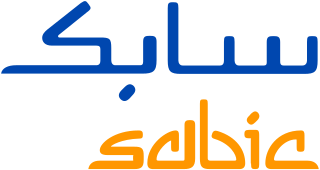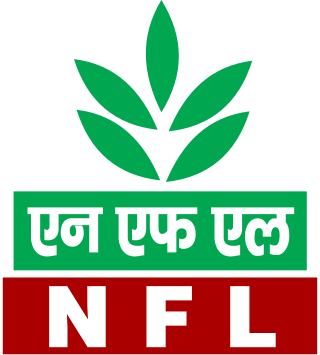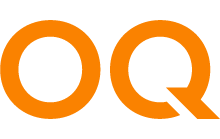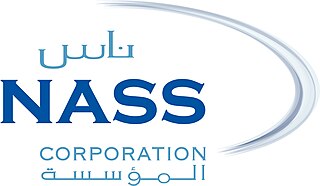
The economy of Trinidad and Tobago is the third wealthiest in the Caribbean and the fifth-richest by GDP (PPP) per capita in the Americas. Trinidad and Tobago is recognised as a high-income economy by the World Bank. Unlike most of the English-speaking Caribbean, the country's economy is primarily industrial, with an emphasis on petroleum and petrochemicals. The country's wealth is attributed to its large reserves and exploitation of oil and natural gas.

The economy of Bahrain is heavily dependent upon oil and gas. The Bahraini Dinar is the second-highest-valued currency unit in the world. Since the late 20th century, Bahrain has heavily invested in the banking and tourism sectors. The country's capital, Manama is home to many large financial structures. Bahrain's finance industry is very successful. In 2008, Bahrain was named the world's fastest growing financial center by the City of London's Global Financial Centres Index. Bahrain's banking and financial services sector, particularly Islamic banking, have benefited from the regional boom driven by demand for oil. Petroleum is Bahrain's most exported product, accounting for 60% of export receipts, 70% of government revenues, and 11% of GDP. Aluminium is the second most exported product, followed by finance and construction materials.

Petrochemicals are the chemical products obtained from petroleum by refining. Some chemical compounds made from petroleum are also obtained from other fossil fuels, such as coal or natural gas, or renewable sources such as maize, palm fruit or sugar cane.

Think Big was an interventionist state economic strategy of the Third National Government of New Zealand, promoted by the Prime Minister Robert Muldoon (1975–1984) and his National government in the early 1980s. The Think Big schemes saw the government borrow heavily overseas, running up a large external deficit, and using the funds for large-scale industrial projects. Petrochemical and energy related projects figured prominently, designed to utilise New Zealand's abundant natural gas to produce ammonia, urea fertiliser, methanol and petrol.

Point Lisas is a major industrial centre in Trinidad and Tobago and is host to the Point Lisas Industrial Estate and the Port of Point Lisas, both of which are managed by Plipdeco. Point Lisas is located in Couva, Trinidad and Tobago and on the Gulf of Paria coastline.

Saudi Basic Industries Corporation, known as SABIC, is a Saudi chemical manufacturing company. 70% of SABIC's shares are owned by Saudi Aramco. It is active in petrochemicals, chemicals, industrial polymers, fertilizers, and metals. It is the second largest public company in the Middle East and Saudi Arabia as listed in Tadawul.
Coal liquefaction is a process of converting coal into liquid hydrocarbons: liquid fuels and petrochemicals. This process is often known as "Coal to X" or "Carbon to X", where X can be many different hydrocarbon-based products. However, the most common process chain is "Coal to Liquid Fuels" (CTL).

Asaluyeh is a city in the Central District of Asaluyeh County, Bushehr province, Iran, and serves as capital of the county. Alternate spellings include: Assalouyeh, Asalouyeh, Asaloyeh, Asalooyeh, Asaluye, Assaluyeh, and Asalu. UNCTAD codes: IR YEH, IR PGU, and IR ASA.
The Dakota Gasification Company is a synthetic natural gas producing company founded in 1984 in Beulah, North Dakota, United States. It is an operator of the Great Plains Synfuels Plant. The plant is located at 47°21′27.75″N101°50′28.72″W. The plant uses lignite coal to produce synthetic natural gas utilizing a coal gasification process. The plant processes 16 thousand tons of coal daily. Coal is oxidized to coal gas, which is then converted from a mixture of carbon monoxide, carbon dioxide and hydrogen to methane, by hydrogenation over a nickel catalyst. The synthetic natural gas is pipelined to the Northern Border Pipeline which transports gas from Canada, Montana and North Dakota to the Ventura, Iowa area, where the pipeline interconnects with many pipelines supplying the eastern United States. The Dakota Gasification Company is a subsidiary of the Basin Electric Power Cooperative which is located in Bismarck, North Dakota. On August 16, 2021, it was announced Bakken Energy would be acquiring the Dakota Gasification Company to be transformed to a blue hydrogen project.
Ma'ameer is a village in Bahrain. Nationally, the village is known for its Industrial Area, which consists of the Bahrain Petroleum Company (BAPCO) refinery and a large number of factories, production units such as Awal Ready-mixed Concrete (ARMCON), Eastern Asphalt, Gulf Petrochemical Industrial Corp (GPIC), Aluminium Bahrain and Al Zamil Aluminium. Villagers have long complained of health problems as a result of pollution from the Industrial Area.

National Fertilizers Limited (NFL) is an Indian central public sector undertaking and the largest government-owned-Urea fertilizer-producer in India as of 2022. It is a Miniratna (Cat-1) company, with the Government of India owning a majority stake.

The National Petrochemical Company (NPC), a subsidiary to the Iranian Petroleum Ministry, is owned by the government of the Islamic Republic of Iran. It is responsible for the development and operation of the country's petrochemical sector. Founded in 1964, NPC began its activities by operating a small fertilizer plant in Shiraz.

The Ministry of Petroleum (MOP) (Persian: وزارت نفت, romanized: Vezârat-e Naft) manages the oil industry, the producer of oil and petrochemical products. MoP is in charge of all issues pertaining to exploration, extraction, exploitation, distribution and exportation of crude oil and oil products. In addition, according to the "Imports and Exports Regulation Act", issuing import licenses for such products is also among the functions of the Ministry of Petroleum. The ministry has been placed under sanctions by the United States Department of State as of 2020.

QatarEnergy, formerly Qatar Petroleum (QP), is a state owned petroleum company of Qatar. The company operates all oil and gas activities in Qatar, including exploration, production, refining, transport, and storage. The President & CEO is Saad Sherida al-Kaabi, Minister of State for Energy Affairs. The company's operations are directly linked with state planning agencies, regulatory authorities, and policy making bodies. Together, revenues from oil and natural gas amount to 60% of the country's GDP. As of 2018 it was the third largest oil company in the world by oil and gas reserves. In 2022, the company had total revenues of US$52bn, a net income of US42.4bn, and total assets of US$162bn. In 2021, QatarEnergy was the fifth largest gas company in the world.

Sirte Oil Company (SOC) is an oil and gas company in Libya operating under the state-owned National Oil Corporation (NOC). The company is located in Brega SOC’s operations include oil and gas exploration and production (E&P) and manufacturing.

Banagas is a Bahraini gas company, headquartered in Bahrain's Southern Governorate. Banagas operates LPG plant facilities which recover propane, butane and naphtha from the Bahrain Oil Field's associated gas and refinery off-gas. Some 94% of the total workforce are Bahrain nationals. 75% of the company's shares are owned by the Government of Bahrain, with the remaining shares owned by Boubyan Petrochemical Company of Kuwait and Chevron Corporation's Bahrain subsidiary, Chevron Bahrain.

OQ, formerly known as Oman Oil Company, is an energy investment company headquartered in Muscat, Oman. It is a wholly owned subsidiary of the Government of Oman through the Oman Investment Authority.

Nass Corporation B.S.C. is a Bahraini public joint-stock company established and listed on the Bahrain Stock Exchange since the year 2005. The paid-up capital is currently BHD 22 million.
In the late 1970s, President Anwar Sadat initiated neoliberal policies in Egypt. Following Sadat's assassination in 1981, President Hosni Mubarak came to power and continued the economic liberalization of Egypt.
Ostchem Holding is a holding company that unites a group of chemical factories and supporting companies. In its turn Ostchem is a part of bigger Group DF that unites several separate enterprises and other holding companies and is owned by Ukrainian oligarch Dmytro Firtash.














